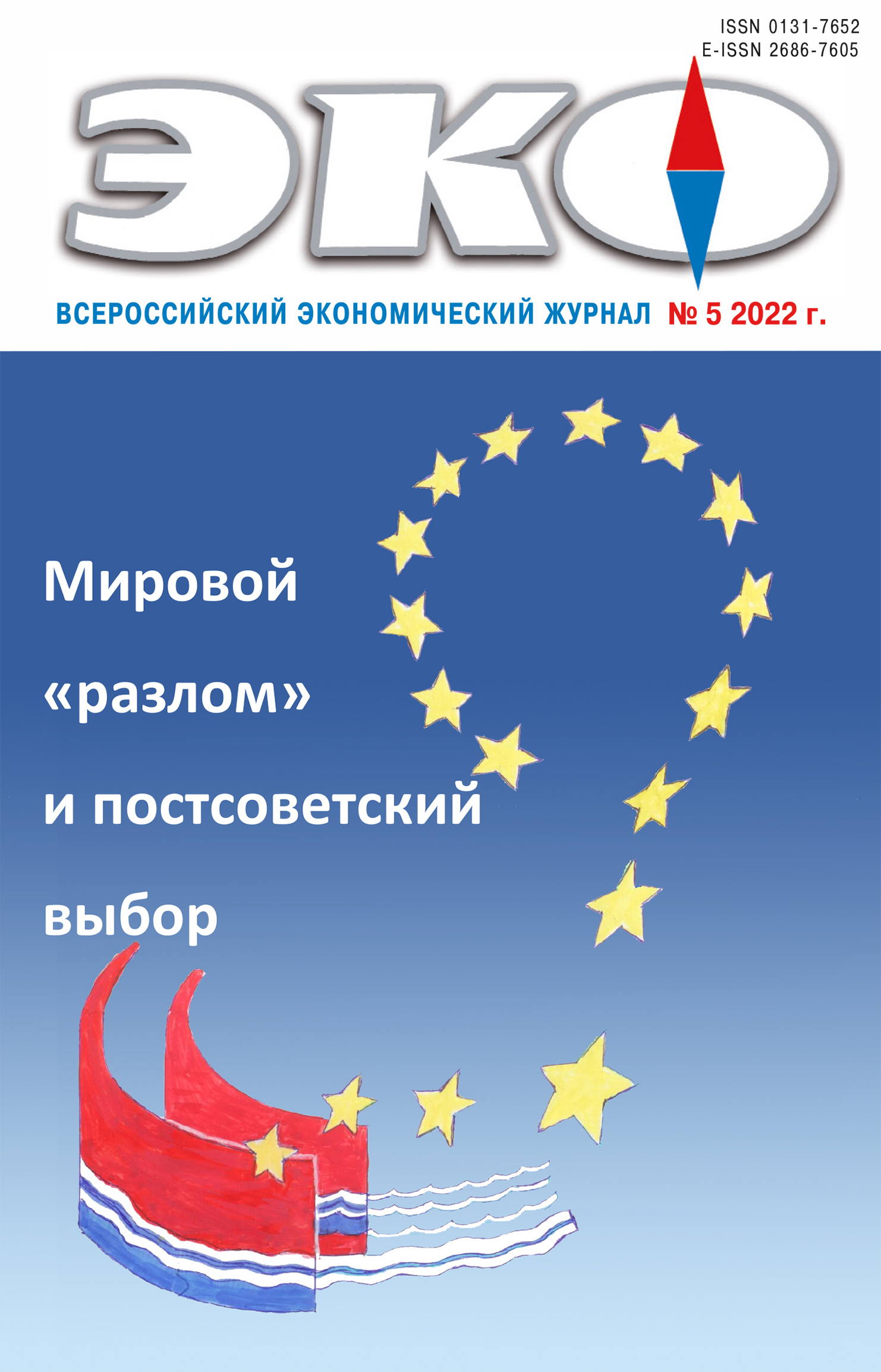ECONOMIC HISTORY OF RUSSIA
Implementation of the Prometheus Strategy for Stimulating Workers’ Labor in the Siberian Military Industry (1941–1945)
Published 2022-04-30
Keywords
- Great Patriotic War; Siberia; defense industry; workers; labor incentives; Prometheus strategy References
How to Cite
1.
Romanov Р. Implementation of the Prometheus Strategy for Stimulating Workers’ Labor in the Siberian Military Industry (1941–1945). ECO [Internet]. 2022 Apr. 30 [cited 2026 Jan. 22];52(5):157-7. Available from: https://ecotrends.ru/index.php/eco/article/view/4432
Abstract
The paper analyzes the historical experience of applying the strategy “Higher Productivity – Higher Glory” in the sphere of moral stimulation of defense industry workers in Siberia during the Great Patriotic War. Its socio-cultural preconditions were rooted in the synthesis of industrial modernity and the archetype of the hero, embodied in the original image of Prometheus. In the first half of the 1940s the Promethean strategy was successfully adapted to the task of creating and developing large military-industrial centers in the eastern regions of the USSR. The tool for its implementation was agitprop technology, which served as a mechanism of labor communication in the new factory teams of defense workers, which had a predominantly youth composition. These technologies were embodied in the form of campaigns to increase labor productivity through the formation of a heroic cult of two-hundred-workers, thousand-workers, participants in the All-Union competition, front-line brigades and their leaders. The approach taken ensured an economic effect that made the USSR’s victory over Nazi Germany unconditional. Such a high result was achieved due to the fact that the bulk of production workers were morally motivated to increase production of arms and ammunition.References
- Букин С. С. Завод «Искра» в годы Великой Отечественной войны. Исторический очерк и воспоминания ветеранов. Новосибирск: Институт истории СО РАН, 2001. 111 с.
- Зотова Т. В., Стеклова О. Е. Моральное стимулирование труда // Вестник УлГТУ. 2012. № 3. С. 71–73.
- Савицкий И. М. Важнейший арсенал Сибири: Развитие оборонной промышленности Новосибирска в годы Великой Отечественной войны. Новосибирск: Изд-во СО РАН, 2005. 449 с.

